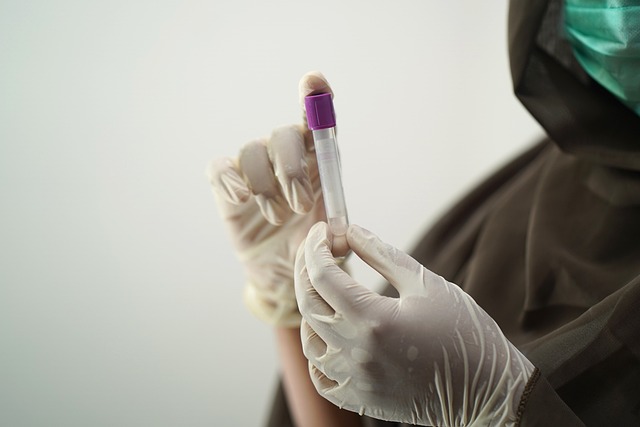The United Kingdom has made significant strides in reproductive health diagnostics with the advent of at-home blood tests that allow individuals to conveniently and privately monitor their hormone levels. These tests are endorsed by both the NHS and private healthcare providers and provide accurate measurements of critical hormones such as FSH, LH, estrogen, and testosterone directly from home. The results empower patients to engage in more informed discussions with healthcare professionals, leading to personalized treatment plans. The at-home testing kits are user-friendly, ensuring sample collection is done accurately before being sent to accredited laboratories for analysis. This innovation has revolutionized the management of reproductive health issues, enabling earlier detection and intervention for conditions like PCOS and thyroid disorders. The convenience and accessibility of UK blood test at home services have made proactive health management more achievable, contributing to better outcomes through targeted interventions and care. These advancements underscore the importance of incorporating at-home testing into the UK's healthcare strategy for reproductive health monitoring, ensuring individuals have the knowledge and tools to manage their fertility and overall reproductive well-being effectively.
Navigating reproductive health challenges can be a complex journey, often necessitating precise hormone analysis. In the UK, advancements in healthcare technology have made at-home blood tests a pivotal tool for diagnosing and managing reproductive issues. This article delves into the transformative impact of these convenient, confidential tests, exploring their role in pinpointing hormonal imbalances that underlie a myriad of health concerns for both women and men. By demystifying the process and interpreting the results, we shed light on how at-home blood testing is revolutionising reproductive health diagnosis within the UK’s healthcare landscape.
Understanding Hormone Analysis: The Role of At-Home Blood Tests in Reproductive Health Diagnosis, UK

For individuals experiencing reproductive health concerns in the UK, understanding hormone levels is pivotal for effective diagnosis and treatment. The advent of at-home blood tests has revolutionised this process, offering a convenient and private means to assess hormonal imbalances that may underlie fertility issues or other reproductive disorders. These home kits enable individuals to collect their own blood samples under medical guidance, which are then sent to certified laboratories for comprehensive analysis. This method not only streamlines the process of hormone testing but also reduces the barriers to accessing timely and critical health information.
The UK’s National Health Service (NHS) and private healthcare providers endorse these at-home blood tests as a reliable tool for monitoring hormonal markers such as FSH, LH, estrogen, and testosterone. These markers play a significant role in the reproductive cycle and can indicate potential issues with ovulation, menstrual irregularities, or hormonal imbalances that affect fertility. By providing clear, actionable data, these tests empower patients to engage in informed discussions with their healthcare providers, facilitating personalised treatment plans and interventions tailored to individual needs. With the option of UK blood test at home, individuals can navigate their reproductive health journey more confidently, ensuring they receive the care and attention necessary for a successful outcome.
The Process and Significance of At-Home Blood Testing for Hormonal Imbalances in the UK

For individuals experiencing reproductive issues, understanding hormonal imbalances is pivotal for effective management and treatment. In the UK, advancements in healthcare technology have facilitated the availability of at-home blood tests to assess hormone levels. This innovative approach allows for greater convenience and privacy while obtaining critical health data. The process typically begins with ordering a test kit online from a reputable service provider authorised by the National Health Service (NHS) or through private healthcare providers. Upon receiving the kit, the individual can conveniently collect their blood sample at home, often using a finger-prick device. This sample is then sent to an accredited laboratory for analysis, ensuring that the results are accurate and reliable.
The significance of UK blood test at home services cannot be overstated; they offer a non-invasive method to monitor hormone levels without the need for hospital visits or lengthy wait times. This convenience encourages more individuals to take proactive steps in understanding their health, leading to earlier detection and intervention for hormonal imbalances. The results provided by these tests can guide both NHS and private healthcare professionals in diagnosing and treating a range of reproductive conditions, from polycystic ovary syndrome (PCOS) to thyroid disorders. With the ability to track hormone fluctuations over time, individuals have a more comprehensive understanding of their health status, which is crucial for informed decision-making about their fertility and overall well-being.
Interpreting Hormone Analysis Results: What Do At-Home Blood Tests Reveal About Reproductive Issues in Women and Men?

Understanding the nuances of hormone analysis is paramount for both women and men experiencing reproductive issues. In the UK, the convenience of at-home blood tests has revolutionised the way individuals monitor their hormonal health. These tests can measure key hormones such as follicle-stimulating hormone (FSH), luteinizing hormone (LH), estrogen, testosterone, and progesterone, providing insights into a person’s reproductive function. For women, these hormones are integral to the menstrual cycle, ovulation, and pregnancy, and any imbalance can signal potential fertility problems or other reproductive conditions. Similarly, in men, testosterone levels are crucial for sexual health, sperm production, and overall reproductive well-being. At-home blood tests offer a non-invasive, private way to assess these hormones. Upon receiving results, it is essential to consult with a healthcare professional who can interpret the data within the broader context of an individual’s medical history and lifestyle factors. These professionals will guide patients on the next steps, whether that involves dietary changes, lifestyle modifications, or further diagnostic procedures. The at-home blood test kits available in the UK are designed to be user-friendly, ensuring that individuals can collect samples accurately and mail them to certified labs for analysis. This process enables early detection and intervention, which is crucial for addressing reproductive issues effectively. With the advent of these tests, individuals have access to critical health information that empowers them to take charge of their fertility and reproductive health, ultimately leading to better health outcomes.
In conclusion, hormone analysis through at-home blood tests has emerged as a convenient and accessible tool for individuals in the UK seeking to understand their reproductive health. This article has outlined the process and significance of these tests, emphasizing how they can reveal critical insights into hormonal imbalances that may underlie reproductive issues for both women and men. The availability of such tests underscores a paradigm shift in healthcare, where self-monitoring plays a pivotal role in early diagnosis and management. As these tests become more widely adopted, they promise to enhance the precision of reproductive health assessments across the UK, ultimately leading to better outcomes for patients.
